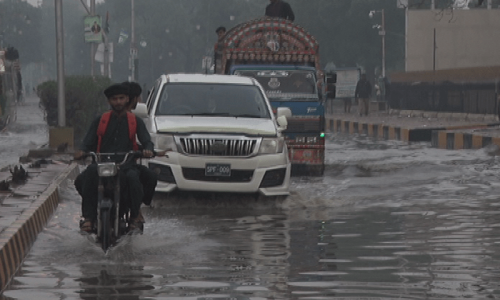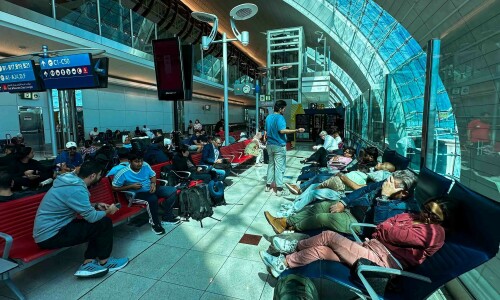THE reshuffle is portrayed as a necessary act, and it may well be given the politicisation of the bureaucracy and the police. But it is apparent that positive change is needed in the long term.
The current system is unwieldy, disruptive and, in certain respects, nonsensical. Caretaker governments have been deemed politically and constitutionally necessary because political governments, even in caretaker mode ahead of a general election, are seen as hostile actors against the free and fair conduct of elections.
However, here, the instruments for the much-feared political interference are believed to be the bureaucracy and the police.
Therefore, after caretaker governments are sworn in, it has been deemed imperative to reshuffle not just the leaderships of the bureaucracy and police across the provinces, but to transfer and swap the middle tiers too. As that latter process is now being carried out by the caretaker setups, the scale of disruption is becoming clearer.
Certainly, the caretaker governments are not primarily to blame. Were they not to undertake a wholesale reshuffling and changing of bureaucracy and police, they would be accused of political partisanship.
Still, there is a great cost to the swapping around of administrators and police officers. The police and local administrations are required to aid the ECP in the conduct of free and fair elections, but the time frame is patently unreasonable.
The election is scheduled for a month from now, so the transfers and reassignments under way in Punjab and KP, for example, will give district officials no more than two or three weeks to familiarise themselves with their areas of responsibilities while preparing to aid the ECP in the monumental task of holding simultaneous provincial and parliamentary polls. If lapses or failures occur and are detected, the fairness of the election may be called into question.
The solution — to the extent that one can be identified in a complex environment at the intersection of law, politics and public administration — is the systematic depoliticisation and long-term reform of the bureaucracy and the police.
It should be noted that while the erstwhile PTI-led government in KP often highlighted its reformist credentials, neither the police nor the bureaucracy in the province was improved to the extent that transfers in the services ahead of the polls could be deemed unnecessary.
Even after 10 years of democratic transition and two full terms of assemblies across the provinces and the centre, there has been little by way of commitment to and implementation of administrative reforms by the major political parties.
Worryingly, the caretaker setups themselves have been accused of partisanship and nontransparent decision-making, potentially rendering the constitutional solution to political interference in elections less effective.
Instead of institutionalising massive reshuffles and transfers, the country’s political leadership needs to turn its attention towards police and bureaucratic reforms.
Published in Dawn, June 23rd, 2018















































